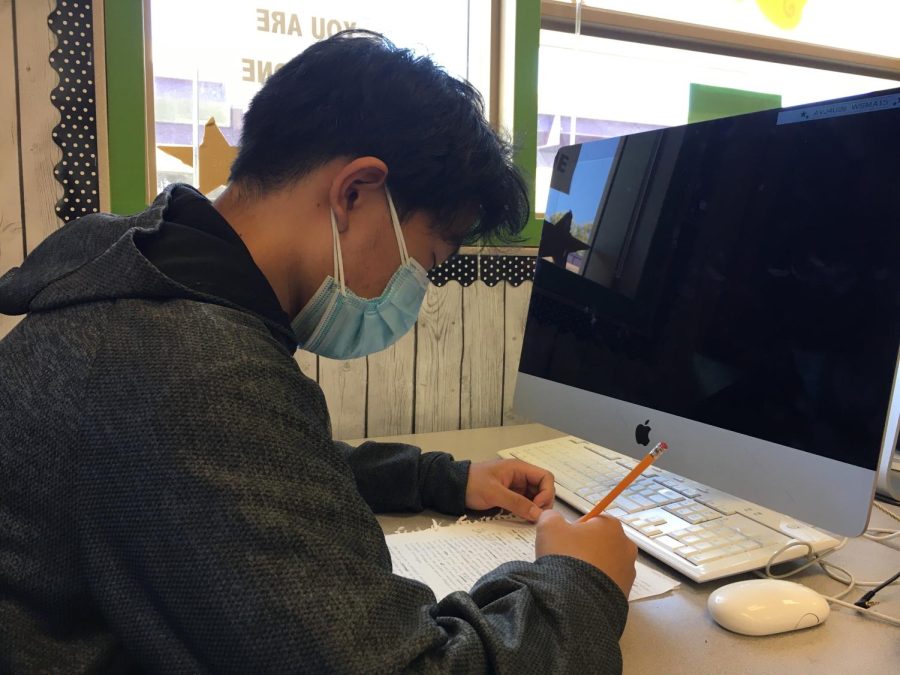Teachers should not allow make up work
Test days always seem to attract a higher number of absences in class. By controlling makeups, this problem can be alleviated.
April 21, 2022
The Necessity of Regulation of Makeup Work
The ability to do makeup work, and get credit, ought to be restricted, and the circumstances under which it is available should be strictly regulated.
Makeup work is conventionally a perfectly legitimate and fair practice, designed for students who miss schoolwork or tests. It makes sense — if a student misses school because of something out of their control, like family matters or sickness, they deserve a chance to make it up. But the system is all too easy for students to abuse and take advantage of.
“Based on the situation… If you cut class, I wouldn’t let you make up an assignment. If you’re sick, I’ll let the kid make it up. There’s wiggle room for me, but some teachers are strict on it,” said Cora Da Costa Pereira, AP Biology teacher.
Character Building Through Deadlines
Students often submit homework assignments far past the deadline that the assignment was originally due. Whatever the reason for late work, be it stress, procrastination, forgetfulness, or simple laziness, late work is not excusable and it must have consequences.
Some teachers deal with this by having a penalty for later work. For example, Christopher Murphy, AP World History teacher, has a generally 50 percent credit policy for late work.
“It shouldn’t be ‘no penalty’ , but there shouldn’t be ‘no late work [accepted]’ either…A 50 percent hit is still a bit stringent. It’s just an arbitrary midpoint. The circumstances are different, and depends on if it’s day to day homework or a big project,” said Murphy.
The practice of “punishing” students for not meeting deadlines is not devised in an attempt to make student’s lives miserable, but to prepare them for the real world. In college and real life jobs, deadlines are strict, and oftentimes assignments or tasks appear out of nowhere, often needing quick turnarounds. In these cases, there are no second chances, as time doesn’t wait for people. Learning these truths is an integral part of growing up.
“In the adult world, there are heavy penalties if you don’t get the contract, or meet the sales. But it shouldn’t be the same for a fifteen year old, and they need to learn that. There should be a consequence, whatever it is,” said Murphy.
Moreover, it’s simply a healthy habit for people to learn: keeping things organized and meeting deadlines. Logistics is a highly applicable skill, no matter what age or profession.
“My class was very small, as it was a niche engineering class. Even then, I explained to my students that part of being an engineer is being able to be creative with time and meeting deadlines in any situation,” said David Zhu, a part time lecturer at SFSU.
Equity Vs. Equality
The concept of “fairness” in the classroom is currently very loosely defined. Does it mean that every student receives the same treatment, or does it mean that different students must be treated according to their needs? In the case of late work, does that mean exceptions for those seriously struggling or stressed out, or disadvantaged? Too many makeups means that students who turn in work on time are being treated fairly, and too little means that grades can suffer from bad luck and circumstances out of the student’s control.
The debate of equity grading is a complex topic, but is relevant to the argument of makeup work. The answer is that a mix of the two should be employed in the classroom, and that common sense can usually determine if a student genuinely needs the makeup opportunity or is simply looking for an excuse to turn work in late or skip school.
“I think all teachers have that one kid every couple years who does that [cheating]. We want to believe in the goodness of children,” says Da Costa.
More often than not, students will take advantage of makeup work in an academically dishonest way or out of a lack of diligence, rather than for its initial purpose of offering students a second chance. The only way to prevent this is to restrict opportunities for makeup work, or to instill heavy penalties on it.






